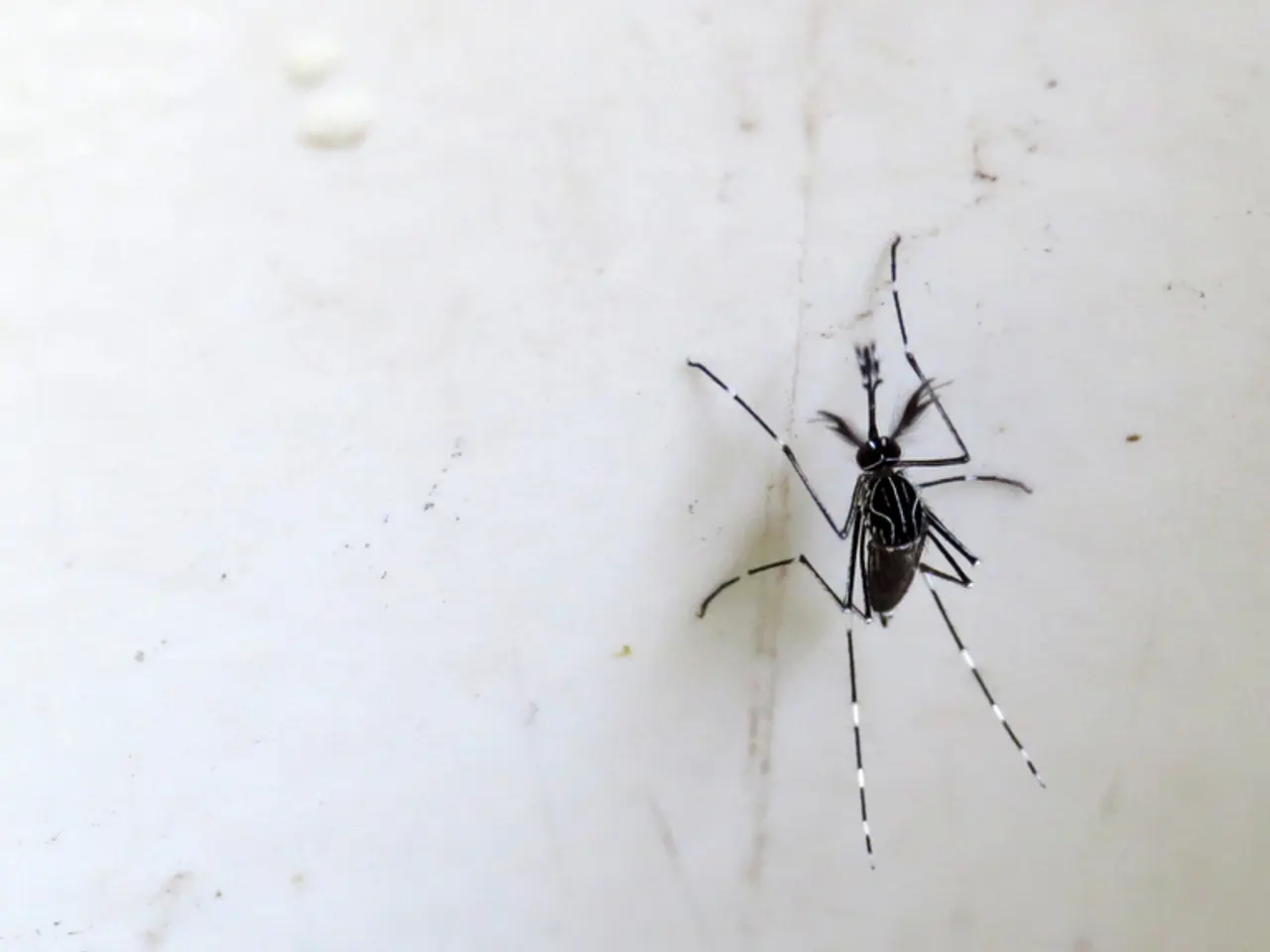Alert on health traveling issued by the CDC concerning the chikungunya virus spread by mosquitoes in China.
Chikungunya, a mosquito-borne virus known for causing severe joint pain and fever, has once again made headlines due to a significant outbreak in Guangdong Province, China. According to the European Centre for Disease Prevention and Control (ECDC), there have been approximately 240,000 infections globally this year, with cases reported in various regions, including the Caribbean, Mexico, Central and South America.
The virus is primarily transmitted through the bites of infected Aedes aegypti mosquitoes, a species that has been detected in Santa Clara County. These day-biting mosquitoes do not have a preference for biting at specific times of the day, making them a public nuisance and a potential health risk.
Chikungunya presents with symptoms such as sudden onset of high fever, severe joint pain, fatigue, rash, headache, muscle pain, and sometimes prolonged joint pain lasting weeks to months. Rare complications can involve neurological or ocular problems.
To combat the spread of the virus, prevention measures focus on reducing mosquito bites and controlling mosquito populations. These include wearing long clothing, using mosquito repellents, sleeping under insecticide-treated mosquito nets, using window and door screens, eliminating mosquito breeding sites, and during outbreaks, authorities may carry out insecticide spraying and introduce larvicidal agents or natural predators.
Vaccines for chikungunya have been authorized since late 2023/2024 in the US and EU, but access remains limited. There were temporary pauses in vaccine use for older adults due to adverse events, but these have been mostly lifted as of mid-2025.
In response to the outbreak in Guangdong Province, the Centers for Disease Control and Prevention (CDC) has issued a travel warning, advising travellers to take extra precautions to avoid mosquito bites. Dr. Jeffrey Silvers, Sutter Health's medical director for Pharmacy & Infection Control, and Dr. John Swartzberg, clinical professor emeritus at UC Berkeley's School of Public Health, have both discussed the disease and emphasized the importance of mosquito control and personal protective measures.
Dr. Taylor Kelly, who works with the vector control district in Santa Clara County for mosquito surveillance, urges residents to report any sightings of day-biting mosquitoes to the Santa Clara County Mosquito and Vector Control District. The small black mosquito with white stripes on the body is of concern in Santa Clara County.
As the outbreak continues, it is crucial for individuals to stay informed, take necessary precautions, and work together with health authorities to control the spread of chikungunya.
- To manage the potential health risks in regions with increasing chikungunya cases, it's essential to adopt measures such as wearing protective clothing, using mosquito repellents, and reporting sightings of day-biting mosquitoes, like the small black ones with white stripes, to local vector control districts.
- The ongoing chikungunya outbreak, especially in Guangdong Province, China, highlights the need for continued scientific research on the control and eradication strategies, including vaccine development and distribution, to prevent further global spread of this mosquito-borne disease in the realm of health-and-wellness.




